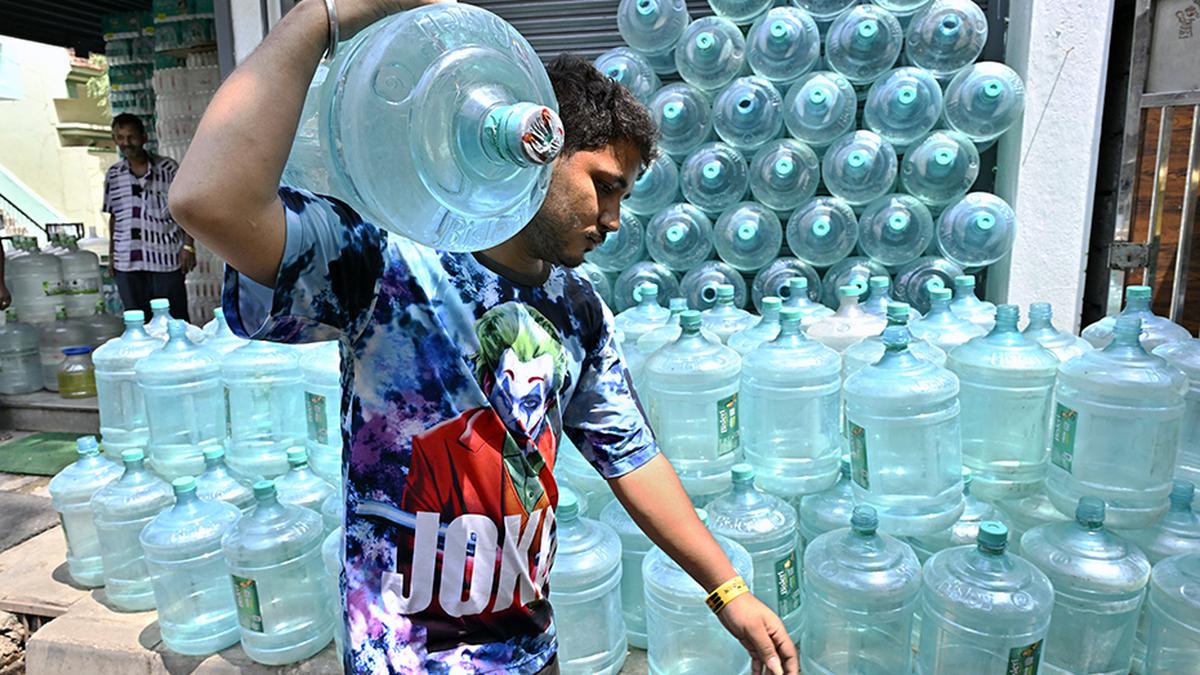
BWSSB seeks CSR funds for innovative water projects in Bengaluru to combat water crisis
The Hindu
BWSSB seeks corporates for innovative water projects in Bengaluru to combat water crisis and improve urban water management.
Amidst a severe drinking water crisis, Bangalore Water Supply and Sewerage Board (BWSSB) has called for Expression of Interest (EOI) from corporates to take up projects with new cutting-edge technologies to alleviate the water situation in the city under their Corporate Social Responsibility (CSR) funds.
The public notification says this initiative aims to collaborate on “the development of bio-retention systems and preservation of rainwater, the introduction of natural filtration in Storm Water Drains (SWDs), and the integration of green infrastructure with water and sewage treatment plants, thereby establishing global gold standards in urban water management”.
One of the major reasons for a severe fall in underground water table levels and drying up of borewells is waterless lakes, experts say. As many lakes are under rejuvenation or have completed rejuvenation works, agencies have diverted sewage water away from the lakes, even as rainwater hasn’t filled up these lakes due to a failed monsoon in 2023. In a first step to correct this, Chief Minister Siddaramaiah has now announced that 14 lakes in the city will be filled up with treated water on the lines of the KC Valley project. This will improve underground water table levels around these lakes, it is hoped.
Also Read | Water woes of Bengaluru: Think long term, go beyond knee-jerk reactions, say experts
The projects that BWSSB now wants corporates to work on under their CSR funds are new technologies that will remediate and treat sewage water to some extent in the SWDs itself before they reach the lake. “If we can do this, like many other cities in the world, we need not divert sewage water away from the lakes even if there are no STPs and this will ensure water in the lakes,” a senior BWSSB official said.
“Many companies have come to us with new technologies to remediate sewage water in SWDs and that they have done it in other cities. We are not in a position to choose the best technology. So we have called for this EOI under CSR funds, to explore various technologies and proof of concept. If we are convinced of the effectiveness of these new technologies, the government can scale up these projects,” K.N. Rajiv, Chief Engineer (Projects), BWSSB.
“There are several technologies implemented elsewhere which remediate sewage water in SWDs before entering lakes. Apart from natural filters that remove solids, there are biotechnologies where bacteria are introduced into the water and they break down carbon, reduce Biochemical Oxygen Demand (BOD) in the water. If we build brick walls it will provide surface area for these bacteria to grow and provide more time and contact for them to remediate the sewage water,” said water conservationist S. Vishwanath.











